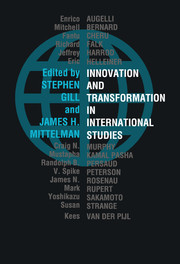Book contents
- Frontmatter
- Contents
- List of contributors
- Preface
- Acknowledgements
- Part I Rethinking and remaking the roots of global social and political theory
- Part II Political economy: the social and ecological anatomy of transformation
- Part III Transformation, innovation and emancipation in global political and civil society
- Part IV Reflections on global order in the twenty-first century
- References
- Index of names
- Index of subjects
Part II - Political economy: the social and ecological anatomy of transformation
Published online by Cambridge University Press: 05 July 2011
- Frontmatter
- Contents
- List of contributors
- Preface
- Acknowledgements
- Part I Rethinking and remaking the roots of global social and political theory
- Part II Political economy: the social and ecological anatomy of transformation
- Part III Transformation, innovation and emancipation in global political and civil society
- Part IV Reflections on global order in the twenty-first century
- References
- Index of names
- Index of subjects
Summary
The purpose of Part II is to widen the focus of approaches to International Studies so as to provide for a more integrated and global form of analysis. In so doing, contributors consider the productive, ecological and social anatomy of the political economy. They stress that transformations called ‘globalisation’ require historical analysis. Indeed, each contributor develops a critique of orthodoxies, for example orthodox Marxist methodological postulates such as ‘the primacy of the economic’, ‘base’ and ‘superstructure’ or ‘determination in the last instance’. They also criticise the liberal separation of the ‘political’ and the ‘economic’, the ‘domestic’ and the ‘international’. Finally, each chapter considers theoretical and practical innovations, for example those associated with ‘imagined communities’ in a process of ‘global transformation’.
Indeed, the first chapter in Part II by Mitchell Bernard reminds us that Polanyi's approach was an innovative ‘substantive’ form of political economy, going beyond ‘formal economics’ that abstracted states and markets from a real social context. Polanyi analyses how particular societies are actually constituted and reproduced, allowing for a theorisation of political economy as an anthropology and ecology of human reproduction. Polanyi's account of the emergence of nineteenth-century liberal capitalism is prescient for those concerned with contemporary forms of globalisation. Polanyi's analysis of the destructive aspects of ‘market mentality’ underlines its subordination of human life and nature to the imperative of competitiveness. A Polanyian perspective thus involves ethical and ecological dimensions of explanation.
- Type
- Chapter
- Information
- Innovation and Transformation in International Studies , pp. 71 - 74Publisher: Cambridge University PressPrint publication year: 1997



